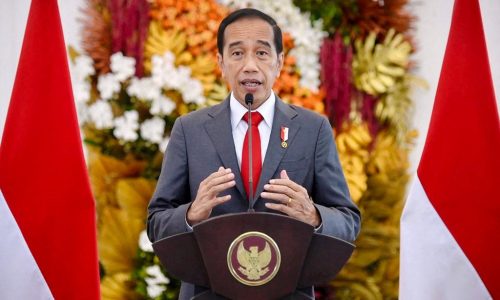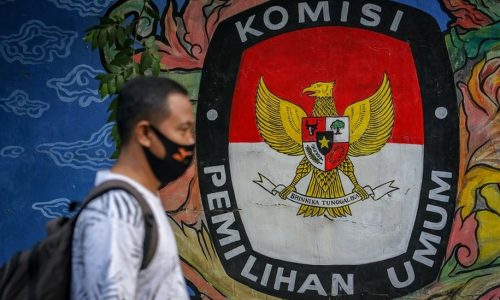Indonesian President Joko “Jokowi” Widodo announced today June 15, 2022, a minor cabinet shake-up, a move that economists and political analysts see as transactional rather than an evaluation of his aides’ performances.
In an inauguration ceremony at the State Palace, Jokowi appointed two new ministers and 3 deputy ministers. They are Zukifli Hasan, chairman of the National Mandate Party (PAN) and a former forestry minister, as the country’s next trade minister; former Indonesian Military (TNI) chief Hadi Tjahjanto as Agrarian and Spatial Planing Minister; and Raja Juli Antoni, currently secretary general of Indonesia Solidarity Party, as deputy minister for Agrarian and Spatial Planning. Jhon Wempi Wetipo, former deputy minister for public works and housing, was named as Deputy Minister for Home Affairs and Afriansyah Noor from the Crescent Star Party (PBB) as deputy minister for Manpower.
“He [Hasan] will be good as the trade minister. Right now for food problems, the people need someone experienced, someone who goes to work on the ground directly,” Jokowi told reporters.
Ousted trade minister Muhammad Lutfi faced political and public pressure over policy efforts to contain an increase in domestic cooking oil prices, which included a shock ban on palm oil shipments from the world’s biggest exporter. The minister had cited there was a “palm oil mafia” which caused the increasing price of the cooking oil prices.
Hasan said that his top priority would be to “immediately” fix the cooking oil crisis that created confusion among the people who rely on the commodity for food and business. He has also been outspoken in defending Jokowi, tossing the idea of a third presidential term for the incumbent.
Reactions
Siti Zuhro, political analyst from the National Research and Innovation Agency (BRIN), said there were political accommodation in the cabinet reshuffle, notably in appointing three deputy ministers and two ministers.
“Previously, PAN under Zulkifli Hasan had supported Jokowi’s government but the party was not accommodated [in the cabinet]. The lobby of the political party and the party chairman has led Jokowi to include PAN this time,” she said.
Meanwhile, Anthony’s appointment is considered as a gift to the Indonesian Solidarity Party (PSI) for its supports for Jokowi. On the other hand, Tjahjanto is considered unfit to his new role as the Agrarian and Spatial Planning Minister.
Political analyst Ubedilah Badrun of the University of Indonesia (UI) said the cabinet reshuffle is purely transactional.
“The reshuffle does not contribute to building trust in the government. It serves no purpose and it does not produce a shocking effect that would encourage optimism. The reshuffle is merely political transactions and power-sharing. It does not create public trust to the government,” he said.
Bhima Yudhistira Adhinegara, Direktur of CELIOS (Center of Economic and Law Studies), said the purpose of the reshuffle was to consolidate government power rather than evaluate ministers’ performance. “This is not very reassuring,” he said.
For the economic sector, the future will be more challenging. However, the president does not understand the importance of putting the right person in the right place.
“We can say that only one economic ministerial post has been replaced in the reshuffle, which will not solve future difficulties,” Adhinegara added.
No significant signal is apparent in the markets. Market players are more concerned about the Fed’s interest rate and external factors than the cabinet reshuffle. A decline in the trade surplus has more of an impact on the market.
Zuhro criticized that in Jokowi’s second term as president, the cabinet shake-up should be conducted seriously, comprehensively, and efficiently by recruiting talented, agile, and innovative ministers to replace those whose performance were below par and failed to please the people.
When political accommodation is the only goal, what appears is an accommodation of the interests of the power, she added, thus there should be a comprehensive evaluation.










